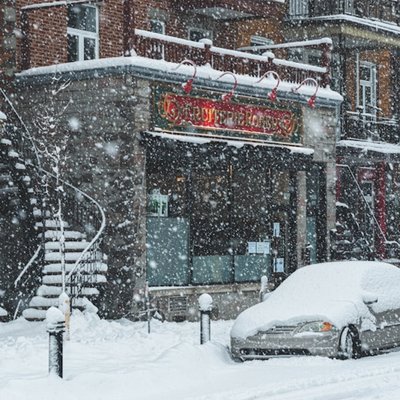do
- Dictionary
do
A transitive verb is a verb that requires a direct object (e.g., acheter).
1. (to perform)
2. (to provide)
3. (to work as)
4. (to study)
a. faire
We did the whole distance in less than two hours.Nous avons fait toute la distance en moins de deux heures.
7. (to cook)
8. (to achieve)
An intransitive verb is one that does not require a direct object (e.g., éternuer.).
10. (colloquial) (to overcome a difficult situation)
A word or phrase that is commonly used in conversational speech (e.g., skinny, grandma).
a. s'en sortir
Brooklyn was doing well in her new job.Brooklyn s'en sortait bien dans son nouveau travail.
b. s'en tirer (colloquial)
A word or phrase that is commonly used in conversational speech (e.g., skinny, grandma).
Javier did brilliantly during the client meeting.Javier s’en est tiré avec brio pendant la réunion avec le client.
a. aller
How is your son doing since he changed universities?Comment va votre fils depuis qu'il a changé d'université ?
a. faire
I'm sure you can do better if you try.Je suis sûr que tu peux faire mieux si tu t’appliques.
An auxiliary verb, or helper verb, is a conjugated verb that comes before a main verb and determines the main verb's tense, mood, or aspect (e.g., avoir, être).
a. no direct translation
This refers to an idiomatic word or phrase for which there is no word-for-word translation.
I love strawberry ice cream - So do I!J'adore la glace à la fraise - Moi aussi !
Sienna loves animals even more than her brother does.Sienna aime les animaux encore plus que son frère ne les aime.
b. no direct translation
This refers to an idiomatic word or phrase for which there is no word-for-word translation.
Do the kids want to go to the park?Les enfants veulent aller au parc ?
Do you prefer to read novels or biographies?Préférez-vous lire des romans ou des biographies ?
a. ne (used with "pas")
We didn't go out yesterday because it was too cold.Nous ne sommes pas sortis hier parce qu'il faisait trop froid.
a. no direct translation
This refers to an idiomatic word or phrase for which there is no word-for-word translation.
Amanda has a twin sister, doesn't she?Amanda a une sœur jumelle, non ?
You went to the mall with your friends, didn't you?Tu es allé au centre commercial avec tes amis, n'est-ce pas ?
A noun is a word that refers to a person, animal, place, thing, feeling, or idea (e.g., femme, chat, maison).
18. (colloquial) (party)
A word or phrase that is commonly used in conversational speech (e.g., skinny, grandma).
a. la fête (F)
(f) means that a noun is feminine. French nouns have a gender, which is either feminine (like la dame or la lune) or masculine (like l'homme or le soleil).
Bill and Gill are having a birthday do next Saturday.Bill et Gill organisent une fête d'anniversaire samedi prochain.
19. (invariable) (music)
A word or phrase that doesn't change according to the number or gender of the thing it describes (e.g., les chiens marron).
a. le do (M) (invariable)
(m) means that a noun is masculine. French nouns have a gender, which is either feminine (like la dame or la lune) or masculine (like l'homme or le soleil).
A word or phrase that doesn't change according to the number or gender of the thing it describes (e.g., les chiens marron).
Let's warm up our voices with some scales: do, re, mi, ...Réchauffons nos voix avec quelques gammes : do, ré, mi…
Conjugations
Indicative of "do"
Collins English Verb Conjugation Tables © HarperCollins Publishers 2023
Examples
Machine Translators
Translate to do using machine translators
Random Word
Roll the dice and learn a new word now!




















